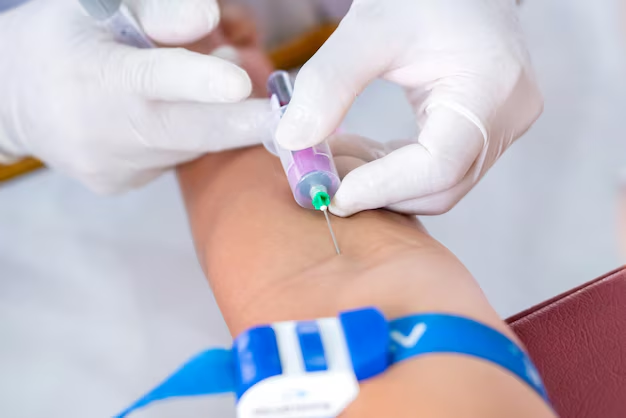Your Guide to Can You Donate Plasma If You Have Diabetes
What You Get:
Free Guide
Free, helpful information about Diabetes FAQ and related Can You Donate Plasma If You Have Diabetes topics.
Helpful Information
Get clear and easy-to-understand details about Can You Donate Plasma If You Have Diabetes topics and resources.
Personalized Offers
Answer a few optional questions to receive offers or information related to Diabetes FAQ. The survey is optional and not required to access your free guide.
Can Diabetics Donate Plasma? Here's What You Need to Know
Every day, thousands of patients rely on plasma donations for life-saving treatments. But as a diabetic, you might be wondering if you can join the ranks of plasma donors. The answer isn't a simple yes or no; several factors determine your eligibility.
Understanding Plasma Donation
Plasma is the liquid component of your blood, rich in essential proteins and antibodies. Donating plasma is crucial for treating various conditions, including immune system disorders and chronic diseases. While the demand for plasma is constant, donor eligibility criteria protect both donors and recipients.
Diabetes and Plasma Donation: The Basics
The primary consideration for whether you can donate plasma as a diabetic is control of your condition. Here's what you need to keep in mind:
- Type of Diabetes: People with both Type 1 and Type 2 diabetes can donate plasma. However, the key is maintaining stable blood sugar levels.
- Insulin Use: Some centers may have specific restrictions if you are on insulin. It's crucial to check with the local donation center about their policies.
- Medications: Aside from insulin, donors must disclose all medications. Certain drugs can disqualify you from donating.
- Health Status: You should be in good general health and have your diabetes well-controlled without recent hospitalizations.
Preparing for Donation
If you're considering plasma donation, here are some steps to ensure a safe experience:
- Check Requirements: Contact your local plasma center to understand their requirements for diabetic donors.
- Consult Your Doctor: Discuss your plan to donate plasma with your healthcare provider to ensure it's safe for you.
- Monitor Blood Sugar: Keep your diabetes well-managed, maintaining stable blood sugar levels before and after donating plasma.
- Stay Hydrated and Eat Well: This is essential, especially for diabetics, to prevent dips in blood sugar levels that might occur post-donation.
Related Financial and Educational Opportunities
If diabetes impacts your financial health, there are numerous resources available to aid in medical expenses or provide relief in other areas:
- State Assistance Programs: Many states offer assistance specific to diabetics, covering medical supplies and medications.
- Debt Relief Options: If you're struggling with medical debt, some organizations specialize in negotiating reduced payments or creating manageable plans.
- Educational Grants: For those looking to advance their careers but constrained by health-related expenses, educational grants can ease the burden, enabling financial stability in the long term.
Final Thoughts
Donating plasma can be a fulfilling way to contribute to the community, even as a diabetic. Ensure that you prioritize your health, stay informed, and explore opportunities that alleviate financial strain. By taking these steps, you can make a positive impact on both your life and the lives of others.
Helpful Resources for Diabetics 😊
- 🩸 State Assistance Programs: Financial support for diabetes-related expenses
- 💰 Debt Relief Options: Services to manage and reduce medical bills
- 🎓 Educational Grants: Grants aimed at enhancing skills and employment opportunities for those affected by diabetes
- 🏥 Consultation Services: Free professional advice for managing diabetes effectively
These resources are designed to support your wellbeing while empowering you to make informed financial and health-related decisions.
What You Get:
Free Diabetes FAQ Guide
Free, helpful information about Can You Donate Plasma If You Have Diabetes and related resources.

Helpful Information
Get clear, easy-to-understand details about Can You Donate Plasma If You Have Diabetes topics.

Optional Personalized Offers
Answer a few optional questions to see offers or information related to Diabetes FAQ. Participation is not required to get your free guide.


